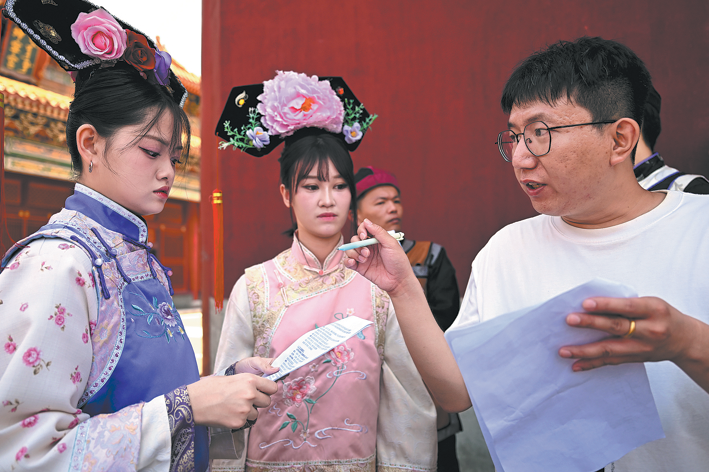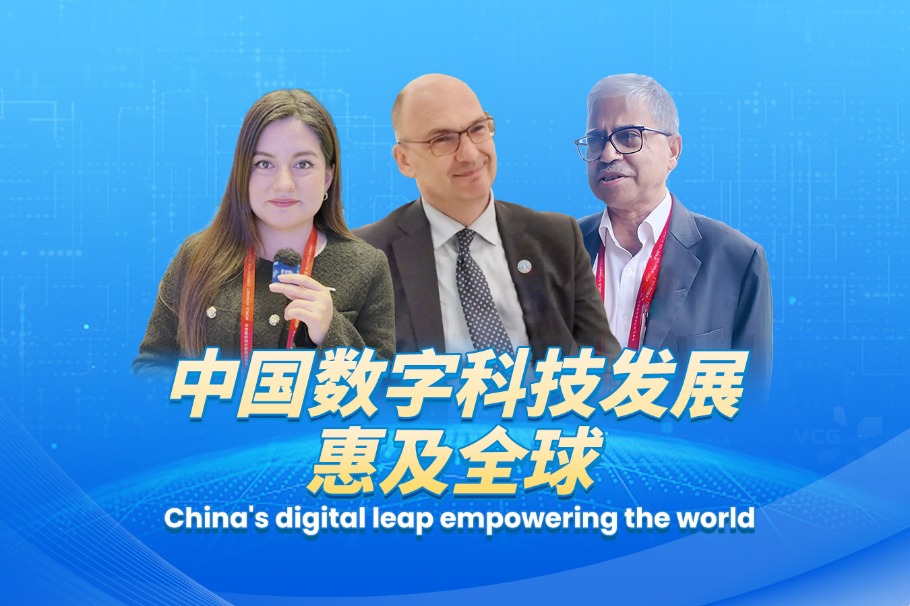Why is Africa so close to China?
By Vox South | chinadaily.com.cn | Updated: 2024-08-31 11:16

China and Africa used to seem so far away from each other. As the British poet W. H. Auden once wrote, "I'll love you, dear, I'll love you till China and Africa meet." However, Africa and China have established an exceptionally close and friendly relationship a long time ago. This September, the 2024 Summit of the Forum on China-Africa Cooperation (FOCAC) will be once again held in Beijing. According to announcements from Beijing and Africa, dozens of African leaders are expected to travel thousands of miles against all odds for the gathering, which will undoubtedly underpin Beijing's recent statement that the China-Africa relationship is "in its prime in history".
Why are China and Africa so close, though geographically far apart? It baffles the Western world, which always views Africa as its own sphere of influence. Many have attributed it to China's generous investment in Africa. Well, economic ties do matter. China has proposed the Belt and Road Initiative (BRI), which is warmly welcomed by Africa. It has also invested in major infrastructure projects across the continent. Up to now, China's non-financial direct investment stock in Africa has exceeded $40 billion, roughly on par with the United States. China has been Africa's largest trading partner for 15 years in a row, with the trade volume reaching $282.1 billion in 2023, four times that of the US- Africa trade in the same year.
The West has indeed tried to catch up. Since the Obama era, US administrations have launched global initiatives similar to the BRI, with an aim to channel more investment to African infrastructure. They include Power Africa during Obama's tenure, Prosper Africa proposed by Donald Trump, and the Build Back Better World (B3W) and Partnership for Global Infrastructure and Investment (PGII) initiated by the G7 during the Biden administration. Unfortunately, all these initiatives have become empty promises. They not only faded into obscurity along with the switch of Presidents in the US, but also often came with tough political and economic conditions. In contrast, China has always treated Africa as an equal partner and never slackened any efforts before its projects were finally completed. That's why China-aided projects are visible everywhere in Africa today, such as the African Union headquarters, the new ECOWAS headquarters, and Africa Centers for Disease Control and Prevention, not to mention railways and bridges funded by China. China also shares technology and management expertise with Africa in line with principles of equality and respect, helping African countries build capacity for self-generated development.
Equality and respect, they are the secrets behind Africa's trust in and closeness to China. As victims of colonialism, the two sides empathize with each other, and always render mutual sympathy, respect, and support to one another. In the 1950s, the newly founded People's Republic of China spared no efforts to support African countries' national independence movements, and treated them as equals regardless of their size. African countries reciprocated with their support to China in the international arena including the United Nations. Such mutual respect and support, built up over decades, has become an incredibly strong bond connecting Africa and Beijing. This bond has brought about more exchanges in education, art, sports, and tourism, and the two peoples have begun to experience and appreciate each other's culture. Such amity between the people has reinforced the China-Africa friendly ties.
On the contrary, the colonial record of the West still casts a long shadow over the African continent. Western countries still cling to the legacy of the colonial times - arrogance and contempt. How would African countries possibly let down their guard? It has been most obviously shown in the US–Africa Leaders Summit 2022, where representatives from 49 African countries and the African Union were invited to Washington for a meeting with the US President. Many African leaders later expressed their feeling of "humiliation". President William Ruto of Kenya once said indignantly in public that, "It is not intelligent for 54 of us to go and sit before one gentleman from another place. And sometimes we are mistreated. We are loaded into buses like school kids. It's not right." The reference to some African countries as "shithole" nations by some former American leader has also offended the entire continent. The Sudanese-born British IT entrepreneur Mo Ibrahim has put it bluntly during an interview with the CNN that "We are not a shithole. We are decent people like everybody else."
Such insults have made African countries more eager to pursue independent and self-sustained development. The rapid growth and modernization of China, a fellow member of the developing world, has brought confidence and hope to African countries, which also explains their closeness to China. African countries have come to realize that, with years of trials and tribulations, following the footsteps of the West will never allow them to catch up, and Westernization is by no means the only way towards modernization. With its own success, China has shown Africa another path to modernization. China's unreserved sharing of its modernization experience will also help Africa accelerate progress and avoid detours.
Furthermore, China, the largest developing country in the world and Africa, the continent with the largest number of developing countries, share more common interests and topics when it comes to inequality and injustice in the international political and economic order created by Western hegemony. The two sides have stood up against Western neo-colonialism, rendered each other support in the international arena, worked together to gain rights and advance interests for other developing countries, and strived to increase the representation and voice of the Global South in global governance.
In conclusion, with common experiences, interests, and aspirations, China and Africa will never cease their efforts to reach out to each other. How could such friendship between the two, with strong intrinsic dynamism, be easily undermined?
























